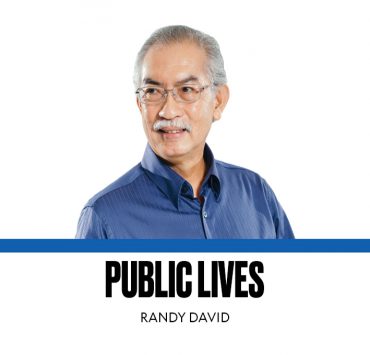Fulfilling health agenda

President Marcos has made two major health-related announcements that would be of huge help, especially for poor Filipinos who cannot afford medical care and for communities that lack health service facilities.
In his fourth State of the Nation Address (Sona) last Monday, Mr. Marcos said that zero-balance billing will be implemented for patients in Department of Health (DOH) hospitals. He also announced that his administration will build more Bagong Urgent Care and Ambulatory Service (Bucas) facilities across the country over the next three years.
These programs sound impressive and look good on paper, but are not what they seem in reality. The Alliance of Health Workers (AHW), the country’s biggest coalition of health care workers, has called them “budol” (scam) and “vague rhetoric and misleading narratives that ignore the worsening realities on the ground.”
AHW said the President only passed the responsibility of the zero-balance policy to the Philippine Health Insurance Corp. (PhilHealth), which it noted is already facing financial mismanagement issues. It added that the government did not even allocate any funding for PhilHealth in this year’s national budget. This lack of budget could result in billions worth of unsettled claims to hospitals—as it is, PhilHealth already has an outstanding obligation of at least P8 billion to hospitals covering the period 2018-2024.
“Basic accommodation”
AHW added that patients must first register with PhilHealth, but numerous documentary requirements make it a tedious process that creates a barrier for those who urgently need medical care. Beyond these budgetary and procedural issues, the policy could lead people to believe that they need not pay a single centavo when they seek treatment at a DOH hospital. This is not what the fine print says.
Zero-balance billing only applies to individuals confined in “basic accommodation” rooms or wards in these DOH-run facilities, numbering about 87 across the country. It must be emphasized that not all public hospitals are operated and funded by the DOH. DOH facilities are usually tertiary or regional medical centers that offer specialized and referral services and are better equipped. However, these hospitals may not at all times have a room or bed covered by the policy, leaving patients with no choice but to wait until a basic accommodation becomes available, or, if it were a medical emergency, opt for a private room that would cost them.
Overcrowded emergency rooms
The policy does not cover the four specialized government-owned and controlled corporations, namely the Philippine Heart Center, Philippine Lung Center, National Kidney Transplant Institute, and the Philippine Children’s Medical Center, which have their separate benefit packages.
While the policy covers medicines, laboratory tests, and doctors’ professional fees, aside from basic accommodation, patients could incur out-of-pocket expenses when hospitals do not have the needed medicines or supplies. So, while it means zero payment on the part of the patient in an ideal scenario, the reality is that expenses could still be incurred.
Thus, Mr. Marcos’ statement, “Bayad na po ang bill ninyo (Your bill is already paid),” should have come with a reminder for the public to first check the terms and conditions. Or else there would be a lot of disappointed Filipinos finding out that the zero-balance policy is not absolute for everyone.
The same could be said about the Bucas centers, which are meant to decongest overcrowded emergency rooms in public hospitals. Mr. Marcos said his administration has established 53 Bucas centers across 32 provinces offering free check-ups, x-rays, lab tests, and outpatient services.
Severe understaffing
But, as AHW pointed out, this has only worsened the situation on the ground because the government has not hired additional health personnel for these centers. This places an additional burden on existing health workers, compromising the quality of service. It added that, instead of addressing the severe understaffing in public hospitals through mass hiring, the government has opted for contractualization.
The government must understand that health care workers are the core of public health, and seriously look after their welfare. Without them, it cannot fully implement the Universal Health Care Act which mandates access to quality and affordable healthcare services for all Filipinos. It is no surprise that thousands of nurses and doctors would rather opt to work abroad where they are offered better opportunities.
It is not enough for the government to launch health programs and brag about how they will impact the public without ensuring that they get necessary budgetary support to cover patients’ needs, pay health care workers their due, and allow hospitals to adequately provide these services. Otherwise, it will be mere lip service, or budol in today’s lingo.

















The economic potential of PH coconut and abaca